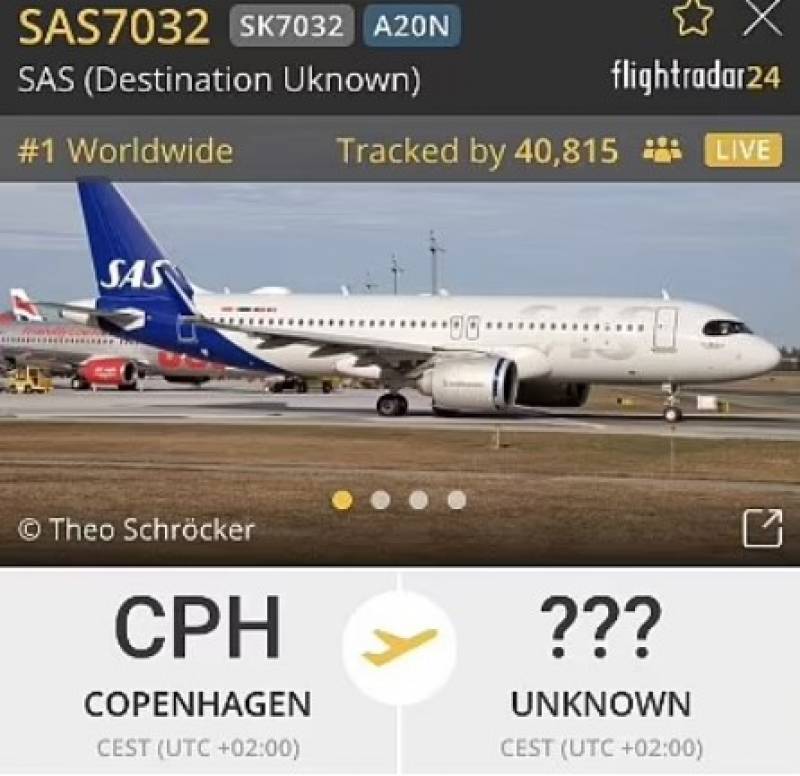Spanish News Today Editors Roundup Weekly Bulletin Apr 11
TOP STORIES: "Illegal British-run nursing home uncovered in Spain" & "Free train and bus travel passes this summer"
This week, we bring you a very sad story of some dreadful goings on in Murcia, where a it appears that a British couple have been running an unlicensed nursing home for years now, and where they were apparently abusing the elderly residents to the point of neglect.
No better is the behaviour of Commander in Mischief Donald Trump, who has been up to his usual world order-shattering hijinks this week, but we’ve also got some nice news for you about free train travel to balance things out. Buckle up!
The illegal Murcia care home scandal that authorities ignored for years
In the tiny Cartagena village of La Manchica, nestled just five kilometres from Fuente Álamo, a horrifying scandal has come to light. What was advertised as a rural guesthouse with a bar was, in reality, a
makeshift nursing home operating without any licence or regulation for years. The true nature of this unregistered facility only came to wider attention last month, when an elderly English woman was found close to death, lying in filth.
On March 16, emergency services responded to a call from a remote farmhouse owned by a British couple, Brian and Susan K. What they discovered there was nothing short of appalling. The 84-year-old woman, being known right now as A.S., was found dehydrated, emaciated and barely conscious in a room covered in animal waste and rubbish. She was rushed to Santa María del Rosell Hospital in Cartagena, where doctors determined she was on the verge of a coma, suffering from kidney failure and multiple infected wounds. Her condition was described as critical.
Shockingly, this wasn’t a one-off incident. Emergency workers had been called out to the property numerous times over the years, each time encountering elderly residents in distressing conditions. One doctor from the SUAP (Primary Care Emergency Service) said they were met time and again with a “very shady and strange place” filled with cats, dogs and even goats, and no sign of professional care or hygiene.
“There’s no doubt what it is,” said a nurse. “Every time we’re called, we know we’re going to find elderly people in distress, often in horrible conditions.”
The Brit couple behind the operation had bought three connected houses in La Manchica after moving from Camposol in 2018. They named the establishment ‘Pension Hakuna Matata – Rural Guest House’, with a bar of the same name, but also promoted a care home service called ‘Casa Care’ through social media. The Facebook page, which remains active even now, advertised services ranging from basic companionship to complex care, supposedly overseen by a nurse with 32 years’ experience – believed to be Susan K.
Despite clear evidence of elderly residents living on site and receiving care, authorities confirm that Casa Care has never been licensed. Yet photographic evidence, job adverts and videos posted as recently as early 2024 show elderly people in wheelchairs, some wearing breathing aids, living at the property. A.S. appears in several of these images. This was no holiday guesthouse. It was an unofficial care facility, operating in full view of a system that failed to act.
And it wasn’t as if the authorities didn’t know. Guardia Civil records show there was an inspection in 2020, prompted by concerns raised by local police. Emergency workers also submitted warnings. But no meaningful action was taken. According to hospital social services, when they raised the alarm again following A.S.’s hospitalisation, police said they could do nothing without a formal complaint.
Neighbours, too, have long suspected something was wrong. One said the business once advertised itself as an end-of-life residence. Others have accused the couple of a slew of serious crimes including benefit fraud, defrauding charities, child endangerment, animal cruelty and even drug trafficking. According to one person, when alcoholics were sent to their care to ‘dry out’, the couple dosed them with booze, ostensibly to keep them quiet. But despite repeated complaints to both UK and Spanish authorities, nothing has been done.
“Everyone is scared of them,” said one local, who asked not to be named. “This isn’t new. It’s been going on for years. No one wants to listen. But someone needs to see what they are doing.”
“The old lady was fed food that was off, not given anything to drink and left in the same urine-filled clothes for weeks. Sue would shout in her face, terrifying her, and push her about while Brian would torment her and withhold food.
“The kids would try sneak food in to her but if Sue found the wrapper she would strike A.S., who is terrified of them but has been groomed to say the right thing.
“They even threatened the teacher at the kid’s school after hours and he has since been so scared that he dare not say anything.”
Even now, with A.S. hospitalised, no official intervention has taken place. Medical staff say her records clearly list her as a care home resident, yet when questioned, Brian K. claimed she was a family member. Still, he handed over a folder containing all her prescriptions and medical records, a move which doctors found suspicious and inconsistent with his story.
Inside the farmhouse, lights still go on. Voices are still heard. Whether other elderly people remain trapped there is unknown.
One nurse summed up the general feeling among responders: “Everyone knows what’s going on but the message never seems to reach the people who can actually do something about it.”
Free trains for Spain
Starting Tuesday April 8, the rules are being relaxed for the latest round of the free travel scheme. From May 1 to June 30, you’ll only need to take eight trips instead of the usual sixteen to get your deposit fully refunded.
This is your last chance to take advantage of the current system before a new scheme rolls out in July, so it’s a great time to hop on board.
If you’re using Cercanías or Rodalies commuter trains, it’s just a €10 deposit, and for Media Distancia (medium-distance trains), it’s €20. Hit the eight-trip minimum over the two months and your money comes back – automatically if you paid by card, or manually at the station if you paid cash. Just don’t forget to claim it before the end of August.
Coach travel is included too, with intercity bus passes ranging from €20 to €65, depending on the route. The same refund rule applies after eight rides, though applications for these multi-trip bus passes will open later this month.
As usual, passes are only valid for specific routes and can be picked up online or at usual sales points. Meanwhile, in Asturias and Cantabria, local Cercanías and Narrow Gauge train travel remains completely free all year.
One heads-up: if you don’t complete at least eight trips between May and June, you’ll lose your deposit as it’ll be treated as a no-show fee. So if you want to ride for free, make sure you clock those trips.
Playing with people’s lives
Ok, so I know we talked about Trump last week, but I’m afraid we’ve got to have another section on him this week. The truth is that this guy is shaking up the world on a near daily basis with his knee-jerk decisions that have a real-world effect on ordinary people just trying to afford to both pay their rent and make sure they can eat three meals today.
To put it in technical economic terms, this week was absolutely barmy for world markets. On Monday,
Spain’s Ibex 35 and other stock markets around the globe tumbled by around 6%, but the drama had already started the previous Friday, when the index fell by another 6%. The Ibex was up slightly on Tuesday before another drop on Wednesday, and then… well, we’ll get to Thursday in a minute. But basically it’s because everyone’s (read: bankers and traders) scared of the trade tariffs and the effect they could have.
Meanwhile, Spain’s President Pedro Sánchez decided it was the perfect week for a jaunt to Asia.
Off he popped to Vietnam and China, to talk trade, friendship and possibly anything that didn’t involve Donald Trump. Officially, the trip had been planned since last September. Unofficially, the timing couldn’t have been more convenient... or so he thought.
As Trump slapped 10% and 20% tariffs on global and EU goods respectively, Sánchez went east in search of less shouty economic partners. Vietnam and China, two countries currently wearing the heaviest tariff shackles courtesy of the US, rolled out the red carpet. In Vietnam, Sánchez promised €305 million in loans to support Spanish businesses investing in Vietnam.
Back on the trading floor, things got gloomier. The tariff war raged on, pushing markets down further and prompting analysts to begin whispering that terrifying word:
recession. Yes, technically an economic term for a period of two consecutive quarters with no economic growth, but it has real-world effects on average people, like leaving them jobless, penniless and homeless – something that doesn’t seem to have occurred to Trump. Or worse yet, he knows exactly the consequences of what he’s doing, and he’s going ahead anyway.
Then, just as it seemed the world was heading for financial wrack and ruin, and before Sánchez even got to China, Trump pulled one of his trademark U-turns. On Wednesday night, he announced a
90-day truce on new EU tariffs, offering the markets just enough hope to stop hyperventilating. The Ibex 35 rebounded like a coiled spring on Thursday, regaining 6%, while other European markets, Wall Street and the Nasdaq perked up.
It’s not a total peace offering. Trump paused tariffs for Europe, but decided to raise tariffs on Chinese goods to a whopping 145%, in retaliation for them having placed reciprocal tariffs on him.
In China, Sánchez insisted to Xi Jinping that
Spain “is a deeply pro-European country that sees China as a partner of the EU” and that he would work “for relations between the EU and China in which dialogue, reciprocity and harmony prevail”.
His idea to open a new trade channel with Asia and chart a course for other European leaders, which was revolutionary just a couple of days before, may turn out to be ill-timed and premature... or perhaps just way ahead of its time! Trump’s madness has been curbed (for now) in the interests of negotiation and the EU is now more inclined to talk to Donald than to jump in Sánchez's slow boat to China.
The 90-day pause might be a temporary breath of fresh air, but nobody’s betting the farm on lasting calm. When one billionaire is willing to bring the global economy to the edge just because he feels like it today, but might not tomorrow, investors and governments alike are coming to see that we are now in a Brave New World; it’s Trump’s World, and here you never know what fresh madness could be just around the corner.
Murcia
As well as the nursing home drama gripping Murcia this week, drivers are under rather more scrutiny than usual thanks to a
full-throttle campaign by the Guardia Civil to catch speeding motorists. Around 16,000 vehicles are being subjected to checks this week as over 200 officers take to the roads in a noble effort to convince drivers to cut their speed.
Police shared some grim statistics, in case anyone needed extra convincing not to break the speed limit: speeding played a part in over 20% of fatal crashes on intercity roads in Murcia last year, and so far this year about a third of points-based driving licence penalties in Murcia have been for speed-related offences.
While the police efforts are focused on the autovías this week, speeding is something that people living on resorts and urbanisations often complain about. These are residential communities, often with roads that have children playing on either side and animals strolling around. It’s a wonder that there aren’t more accidents involving humans in these places, though the number of cats run over by people going way too fast is already distressing enough. Slow down, save lives and keep your driving licence intact.
Also on the roads, progress is being made on the Northwest Arc road project, a shiny new bypass intended to ease traffic in central Murcia by connecting up the eastern part of the capital with Archena and Cieza. The news is that
this new road is expected to partially open in May… or July… or “after the summer”… or maybe all three, depending on which sections the Ministry of Transport deems ready at the time. It’s still not clear.
Once all sections of the ‘Arco del Noroeste’ are complete (fingers crossed sometime this decade), it will link up Archena, Molina de Segura, Lorquí, Ceutí, Murcia city and Alcantarilla and supposedly ease traffic congestion in the northeast of Murcia and on the road to Albacete and Madrid.
Meanwhile, those choosing to travel not by car but by beach towel this Easter in Cartagena will be greeted with
golden sand, gently lapping waves, and...
absolutely no beach bars. Yes, the much-loved chiringuitos have been caught in a classic administrative standoff, where contracts didn’t get signed because the correct department didn’t get the paperwork, which the council insists it definitely sent, possibly via homing pigeon. In any case, Holy Week will be chiringuito-free from La Manga to La Azohía, meaning no mojitos, no grilled sardines and no toilets.
The new concession system, which promised to improve quality and weed out underperforming operators, has instead managed to weed out, well, all of them. Optimists in the Council have insisted that if everyone scrambles, bars could still be up and running in time for the Easter weekend. Seasoned chiringuito managers, however, suggest that’s utter tosh. So bring your own sandwiches and prepare to commune with nature.
They look like something out of a sci-fi film, or a lot like Portuguese Man o’ War jellyfish, but reassuringly these ones don’t sting. These jellyfish-adjacent critters, officially known as ‘hydrozoans’, float on the surface of the sea like tiny sea yachts and drift where the wind takes them, hence their name. Their sudden arrival on the beaches of this part of the Med has been attributed to recent storms, and has left us with dazzling images of beaches speckled a vibrant blue colour.
The regional government has applied for permission to install up to 60 nets, “just in case”, which in Spain is a phrase often used interchangeably with “when it’s already too late”. The nets, if approved, will not be deployed immediately, but only if the number of jellyfish reproducing begins to annoy swimmers and affect tourist activity like they did last summer.
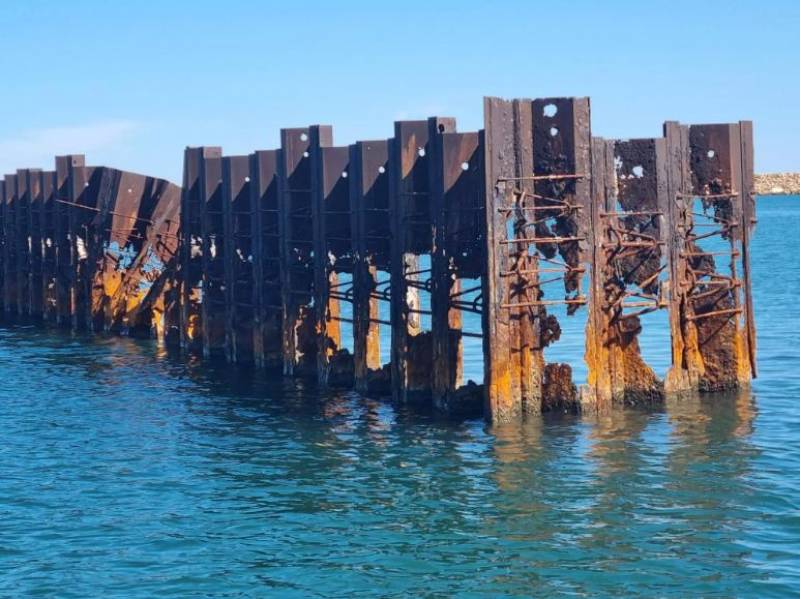
And finally, in a development that might just warrant a cautious round of applause, the long-dormant and spectacularly misguided
Puerto Mayor marina project beside the Estacio canal in La Manga del Mar Menor is finally being dismantled. First launched in the 1970s with dreams of turning this delicate coastal ecosystem into a luxury Disneyland, complete with 2,000 tourist homes and a golf course, the marina ended up as a ghostly monument to bureaucratic stalling and environmental oversight. Work began in 2004, stopped in 2005, and has since become an algae-encrusted legal footnote.
Now, €23.3 million later, the Spanish government is moving forward with a plan to dismantle the lot. That includes removing corroded sea walls, contaminated soil and broken infrastructure, with the intention of restoring the area to something more natural and less apocalyptic. Conservationists will be replanting dunes, adding walkways and even dabbling in experimental seagrass farming. Here’s hoping.
For more events and activities coming up soon in the Region of Murcia see our EVENTS DIARY:
Spain
Planning an Easter escape to Spain? You’re definitely not the only one. With dreams of sunny plazas, seaside strolls and tapas al fresco, thousands of holidaymakers are heading to Spain this Semana Santa. But before you start packing your sandals, there’s one thing everyone’s refreshing like mad: the
weather forecast.
After a soggy March, many are wondering if the skies will clear in time for Easter. And the answer? Well, it’s complicated.
Let’s start with the Canary Islands, traditionally the top destination for British holidaymakers. A pretty powerful storm has hit over the last few of days, bringing heavy rain until at least the middle of Easter week. On the mainland, things look brighter – literally – with a warm spell promising highs of up to 27ºC in parts of southern and central Spain in the early part of this week, but this weekend, rainclouds are creeping in, especially in the south and west. According to Spain’s weather agency Aemet, this could mean a wet start to Holy Week.
“Palm Sunday and the days leading up to it will be rainy,” says Aemet’s Rubén del Campo. “Holy Week itself will begin with rain.”
But it’s not all doom and gloom. Aemet is cautiously optimistic that a high-pressure system might swoop in later in the week and push the rain away, giving us sunnier skies from Sunday April 13.
The bottom line is if you’re spending Easter in Spain this year, pack layers, bring a brolly and stay flexible. Rain or shine, Semana Santa promises incredible processions, rich traditions and all the charm Spain has to offer.
Since April 2, all EU citizens heading to the UK for short stays, whether for a holiday, business or visiting friends, have needed to apply for an ETA. This includes people flying in from Spain and covers trips of less than six months.
The ETA isn’t a visa, but it’s a must-have travel permit. Think of it like a pre-check before you even book your tickets. You’ll need to apply at least three days before travelling but once approved, it allows multiple trips within two years or until your passport expires, whichever comes first.
When it was first rolled out, the ETA cost a reasonable £10. But as of April 9, 2025, that price has jumped by 60% to £16. The Home Office says the increase is part of a wider plan to improve and digitise the UK’s border system, making it faster and more secure. A cynic might say it’s just a ruse to finally turn a profit and an advantage from the expensive blunder that was Brexit.
Irish and British nationals, as well as those covered by the EU Settlement Scheme, are exempt from the ETA requirement. Despite the fee hike, the application process is still straightforward and can be done online via the official GOV.UK website. The UK’s move mirrors systems already in place in countries like the US and Australia, aimed at boosting border security and keeping potential risks at bay.
Craving a bit of Peking duck this weekend? You might want to think twice before heading to one popular spot in Madrid. Health inspectors got more than they bargained for this week when they stepped into Jun Gu, a bustling Chinese restaurant in the city’s Usera district. What they found was straight out of a nightmare – filthy conditions, serious hygiene violations and a twist that’s turning stomachs across the Spanish capital.
Customers who thought they were digging into
Peking duck were actually being served pigeon. Yep, pigeon. Unsurprisingly, the place has been shut down and the owner is now facing some pretty serious charges for endangering public health.
During their inspection, authorities uncovered a hidden storage room tucked away behind a sliding shelf in a disabled bathroom. Inside, they found eight grimy industrial freezers packed with mystery meats and fish with no labels, no temperature controls, nothing sanitary.
Among the “ingredients” were the two domestic pigeons (not safe for human consumption), frozen black hens with no trace of health inspection and a kitchen in total chaos. Think meat dangling from clotheslines, grease dripping onto cardboard and rat traps baited with spoiled meat.
It gets weirder. Inspectors also found 184 duck-shaped gummy bears, 183 containers of unmarked Chinese additives and dyes, a bunch of unidentified herbs (possibly for teas or infusions), bivalves sitting in Asian silt without any sanitation checks, Chinese sea dates, and even sea cucumbers – a protected species that’s illegal to sell or eat!
As if that weren’t bad enough, the kitchen itself was crawling with cockroaches, thanks to ineffective pest control, while the garbage room had more than 100 litres of grease collected in an open container, surrounded by rusty pans, grimy floors and stained stovetops.
All in all, the list of violations was jaw-dropping. Authorities have seized the food, closed the restaurant and charged the owner not just with risking public health, but also with crimes related to protected wildlife.
Alicante
The drama unfolded on the Camino de la Tocha, where officers pulled over a car that was quite literally stuffed to the roof with gear that screamed “we’re up to no good”. And it wasn’t just the suspicious amount of tools that caught the cops’ attention, it was the jittery, restless behaviour of the two guys inside.
When police searched the vehicle, they uncovered what was essentially a mobile toolkit for car theft. They found a vehicle cylinder, a fake car key, a mini spy cam, an OBD reader (which checks a car’s mechanical health) and even a signal jammer, which is commonly used to block wireless key fobs and sneak into cars without setting off alarms.
Officers also uncovered black caps, gloves, neck coverings, screwdrivers filed down like lock picks, packing tape and a hammer. The kind of stuff that makes it pretty obvious these two weren’t just out for a scenic drive.
Police also found a stash of marijuana, and the driver didn’t do himself any favours as he tested positive for drugs on the spot. The local authorities seized all the suspicious equipment and handed the pair over to the Guardia Civil, who are now handling the investigation and looking at prosecution.
The 2025 Michelin Guide has just dropped and Alicante is once again basking in the culinary spotlight. With 24 restaurants earning the coveted ‘recommended’ status, it’s officially leading the pack across the entire Valencian Community.
What exactly is a “recommended” restaurant, you may ask? It’s a nod from Michelin to those places that haven't been awarded a star but still offer a dining experience worth talking about. Think delicious, unfussy dishes made with top-quality produce, a warm and welcoming setting, and prices that don’t require a second mortgage.
Alicante’s winners include a mix of beloved classics and exciting new names. Each one brings something special to the table, whether it’s a bold take on tradition or just downright delicious simplicity.
Spring is in the air and in Torrevieja, that means one thing: flamingos. Lots of them. The city’s famous lagoon and salt flats are buzzing with activity as nature lovers gear up for one of the most magical annual events on the Costa Blanca:
flamingo breeding season.
Every April and May, thousands of pink-feathered visitors arrive to nest on the dry strip of land that divides the salty lagoon. In 2024, around 2,500 flamingo couples made it their temporary home, and hopes are high that we’ll see similar numbers touching down in the coming days.
Last year, the first flamingo pair started nest-building on April 10, so local birdwatchers are already glued to the shoreline, scanning for signs of fluffy arrivals. And judging by the flurry of activity captured by photographer Joaquín Carrión from Proyecto Mastral, we might be just days away from spotting the season’s first baby flamingos, or ‘flaminglets’, if you will.
While flamingos have long been part of the natural park shared by Torrevieja and La Mata, it wasn’t until 2020 that they started actually nesting here. It took a perfect (and unusual) storm to make it happen: Covid lockdown gave the birds a rare moment of peace and quiet, while heavy rains flooded local wetlands and created ideal feeding conditions. At the same time, a drought in traditional breeding areas like Málaga’s Fuente de Piedra lagoon made Torrevieja look like a five-star alternative.
Since then, the birds have been coming back year after year, undeterred by the nearby city life and busy roads. The result is a stunning show of nature right on the edge of town.
So if you’re anywhere near Torrevieja this spring, keep your eyes on the lakes. You just might catch a glimpse of hundreds of elegant flamingos nesting, feeding and, if you’re lucky, a few wobbly-legged flaminglets finding their footing for the first time.
Meanwhile,
Holy Week in Torrevieja is already in full swing, bringing together 15 brotherhoods, 19 religious floats and thousands of participants for a deeply moving and vibrant celebration.
Kicking off on Passion Saturday, April 12, the week features multiple daily processions that wind through the city, beginning with children’s processions and culminating in solemn, large-scale events.
Palm Sunday marks a major highlight with the traditional Blessing of Palms and a grand procession through town. Throughout the week, processions led by various brotherhoods take place from different parishes, including the Archpriestal Temple of the Immaculate Conception and the Parish of the Sacred Heart of Jesus.
Each day, from Holy Monday through Good Friday, brings its own unique atmosphere, from meditative marches to the dramatic and highly anticipated Holy Burial of Christ on Good Friday evening.
Easter Sunday concludes the religious festivities with joyful celebrations, followed by a special event on April 28 honouring San Vicente Ferrer, including a Eucharist and procession dedicated to the sick and disabled.
Andalucía
A farmer in Córdoba has had his 15-month prison sentence upheld after
letting 170 geese starve to death in what the court described as a “collective agony”. Despite multiple warnings from an employee about the geese being underfeed and dying, the farmer decided to do nothing.
When the authorities turned up to investigate, they were met with the horrific sight of all the birds dead in a pile. The judge in the case against the farmer called out his “chained omissions” and proclaimed, “The suffering of an animal, the death of a living being, requires criminal treatment that acquires meaning from its consideration as a sentient being and, therefore, protected in its very identity.” Hear, hear.

To the coast, now, where we take a look inside
Málaga’s most expensive house – a €50 million slice of beachfront heaven in Marbella. Complete with nine bedrooms, eight bathrooms and two kitchens (because, obviously, you need one just for snacks), this stunning villa is located in the exclusive Puente Romano area, with sea views, a pool the size of a small lake and enough terrace space to host a medium-sized music festival.
See how the other half live! And if you fancy a slice of this glamorous lifestyle, it could be yours! The property is for sale on idealista now. All you have to do is go and have a root around until you’ve found a spare 50 million hiding in the sofa cushions and Roberto’s your uncle!
And just when you thought Seville couldn’t get any more popular, along came a group of Danish thrill-seekers who didn’t even know they were heading there!
Even the cabin crew were kept in the dark so they couldn’t let on, but presumably at least the pilot knew where he was going.
A couple of hours later, the plane landed in Seville and passengers were treated to an organised programme of Andalusian highlights, from historical walking tours through cobbled streets to flamenco-themed events and regional culinary experiences. It was all designed to help passengers dive into the culture of one of Spain’s most charming and sun-soaked cities, without any of the usual pre-trip planning.
The concept follows a similar Scandinavian Airlines mystery flight to Athens last year, which also generated a buzz among frequent flyers. The airline says the format is designed to make travel feel more exclusive and spontaneous… and judging by the response online, it’s working. The tickets for this year’s mystery jaunt sold out in just four minutes!
Because the trips all stay within the Schengen Zone – a 29-country free-travel area across Europe – there are no visa complications, and passengers can enjoy a smooth arrival wherever they land.
Scandinavian Airlines hasn’t yet confirmed future dates for more ‘Destination Unknown’ flights, but members are being encouraged to stay tuned for updates. Would you try it?
You may have missed…
- Affordable wine experiences, honey tastings, horse riding and more rural tourism in Murcia.
More and more, people who come to visit Spain are looking for alternative experiences and events based around food, drink, getaways to nature and active tourism in the countryside. Which is why a rural retreat holiday based on wine and honey tasting experiences is the perfect option!
- Students at Las Claras del Mar Menor school take part in photography competition to practise their English.
This spring, art students at the Las Claras del Mar Menor bilingual high school in Los Alcázares took part in a photography competition that encouraged them to use their English language skills in a fun and creative way, and the results are astounding. You can see the four winning entries here, and big congratulations go to the winners and everyone who took part!
- Chocolate bar recall—supermarket chain in Spain pulls product over metal fragment fears.
A popular chocolate bar sold in Aldi stores across Spain has been pulled from the shelves due to worries that it may contain metal fragments.
- David Beckham’s ex-bodyguard Craig Ainsworth found dead after going missing in Spain.
David Beckham’s former bodyguard Craig Ainsworth, 40, has been found dead in Spain after being reported missing. Ainsworth, a former Royal Marine who served in Afghanistan, worked for the Beckhams between 2013 and 2015 while they lived in London’s Holland Park and also protected other A-listers including Johnny Depp, Jennifer Lawrence and Arnold Schwarzenegger, but had been struggling with his mental health and posted an emotional farewell on Facebook days before his death.
- Amazingly well-preserved mammoth rib discovered in Cartagena cave.
A fascinating find in Cartagena has unveiled a complete rib of a southern mammoth inside the Cueva Victoria cave. This major discovery is considered the largest fossil unearthed at the site to date, and will be on display at the Archaeological Museum for the next month before undergoing further study by specialists.
That’s all for this week. Thanks for reading and we’ll be back next week.
See ya!


 Spanish News Today
Spanish News Today
 Alicante Today
Alicante Today
 Andalucia Today
Andalucia Today

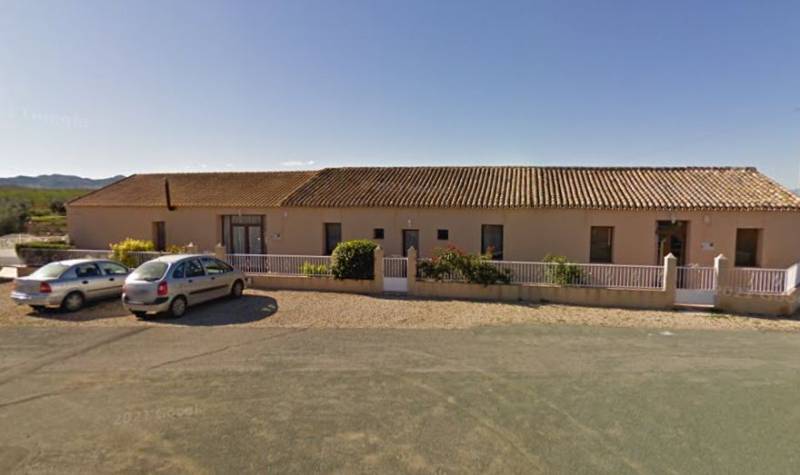
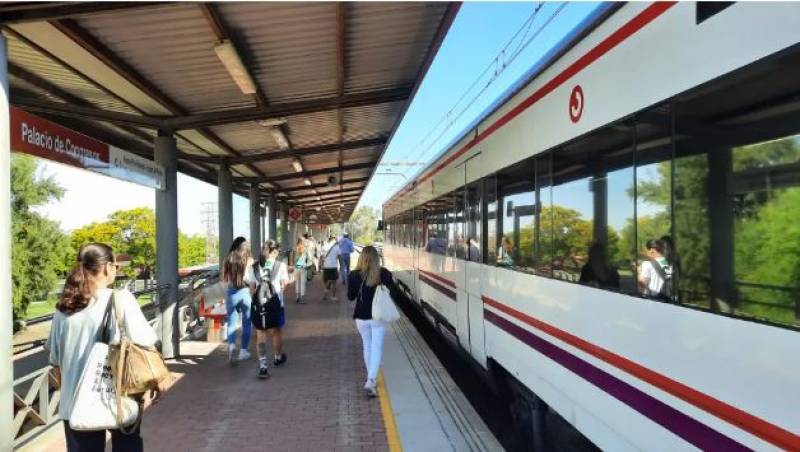

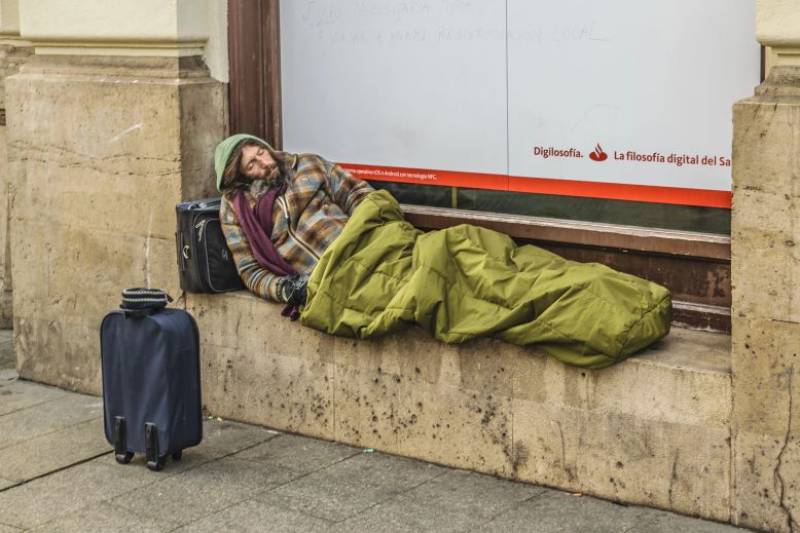
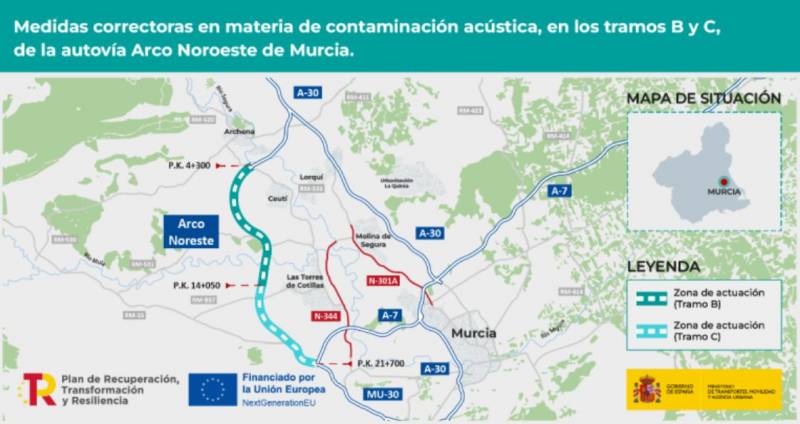
 And finally, in a development that might just warrant a cautious round of applause, the long-dormant and spectacularly misguided Puerto Mayor marina project beside the Estacio canal in La Manga del Mar Menor is finally being dismantled. First launched in the 1970s with dreams of turning this delicate coastal ecosystem into a luxury Disneyland, complete with 2,000 tourist homes and a golf course, the marina ended up as a ghostly monument to bureaucratic stalling and environmental oversight. Work began in 2004, stopped in 2005, and has since become an algae-encrusted legal footnote.
And finally, in a development that might just warrant a cautious round of applause, the long-dormant and spectacularly misguided Puerto Mayor marina project beside the Estacio canal in La Manga del Mar Menor is finally being dismantled. First launched in the 1970s with dreams of turning this delicate coastal ecosystem into a luxury Disneyland, complete with 2,000 tourist homes and a golf course, the marina ended up as a ghostly monument to bureaucratic stalling and environmental oversight. Work began in 2004, stopped in 2005, and has since become an algae-encrusted legal footnote.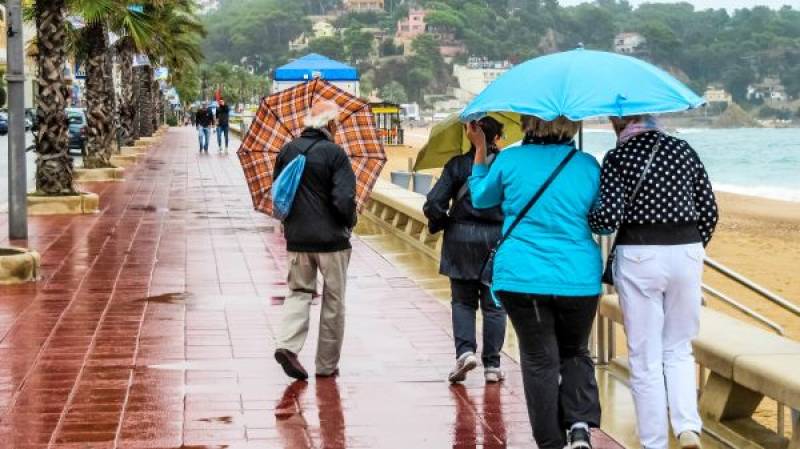
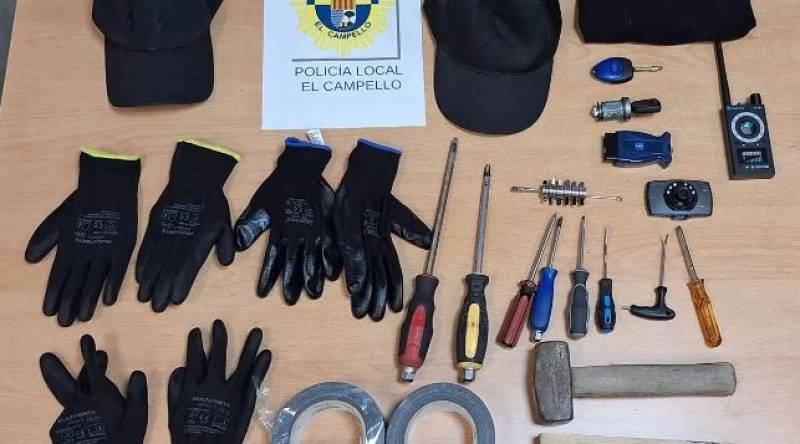
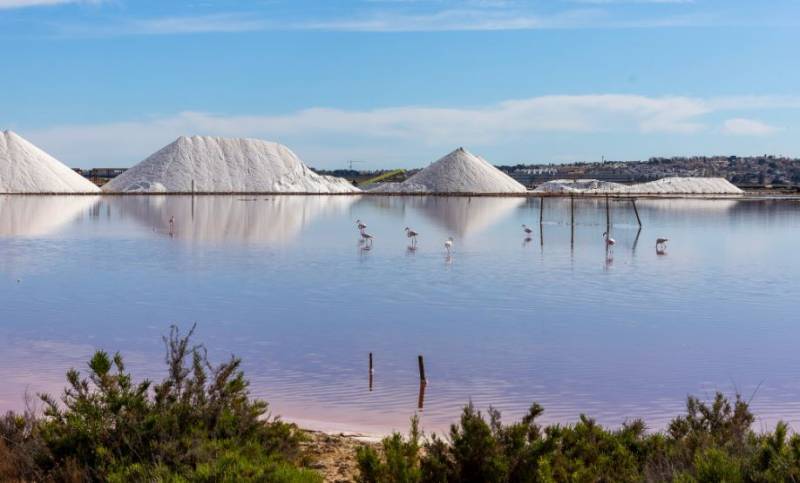
 To the coast, now, where we take a look inside Málaga’s most expensive house – a €50 million slice of beachfront heaven in Marbella. Complete with nine bedrooms, eight bathrooms and two kitchens (because, obviously, you need one just for snacks), this stunning villa is located in the exclusive Puente Romano area, with sea views, a pool the size of a small lake and enough terrace space to host a medium-sized music festival.
To the coast, now, where we take a look inside Málaga’s most expensive house – a €50 million slice of beachfront heaven in Marbella. Complete with nine bedrooms, eight bathrooms and two kitchens (because, obviously, you need one just for snacks), this stunning villa is located in the exclusive Puente Romano area, with sea views, a pool the size of a small lake and enough terrace space to host a medium-sized music festival.